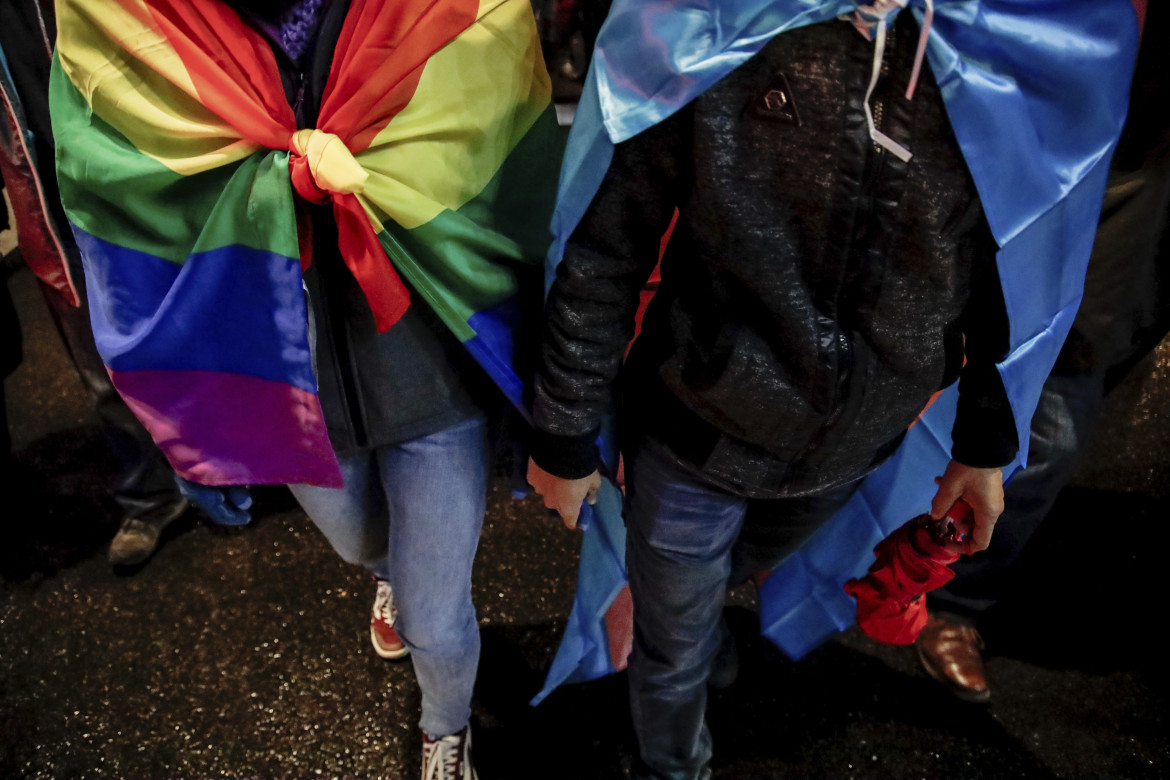Commentary
‘Educating the Differences’ seeks a path against gender stereotypes
This is the tenth year that the Educare alle Differenze network has organized meetings and trainings to address those silences and taboos which, in the school environment, risk turning into malaise, self-harm, violence and school dropout.

“At every moment in time, next to the things it seems natural to do and say, and next to the ones we’re told to think … are other things that society hushes up without knowing it is doing so. Thus it condemns to lonely suffering all the people who feel but cannot name these things,” Annie Ernaux writes in The Years.
Educare alle Differenze (“Educating for Differences”) meets teachers and schools precisely to break down those taboos, stereotypes, silences. The NGO held its national meeting over the weekend, at the Istituto Superiore R. Rossellini in Rome.
This is the tenth year that the Educare alle Differenze network has organized meetings and trainings to address those silences and taboos which, in the school environment, risk turning into malaise, self-harm, violence and school dropout. Moreover, these risks are highly relevant: sexism, bullying, racism, homo-, lesbo-, bi- and transphobia are realities that the younger generations are entirely familiar with. First and foremost, they are familiar with these phenomena because they are part of the society they live in, a society that is macho to the point that the act of using the feminine form for the names of the most important political offices is enough to arouse controversy. They are familiar with them because discrimination and violence are part of their daily lives, at school, on their smartphones and at home.
After the femicide of Giulia Cecchettin, Minister Valditara launched the “National Plan for Respect Education,” a profoundly inadequate project that has fortunately stalled. On the other hand, despite the negative opinion of the Higher Council for Education (CSPI), the minister has recently issued the new Guidelines for Civic Education, which only mentions gender-based violence at the three-year secondary school level, addressing it under the heading of “female employability and entrepreneurship.” These measures display a very poor interpretation of male violence against women, falsely casting it as a rare exception, with an approach that is pointlessly repressive and not at all geared toward prevention and the deconstruction of the patriarchal culture that makes it possible.
Over these ten years of work, we have met many people who are working hard, often without resources, to build up what is really needed to prevent gender-based violence: transformative, truly pluralistic, egalitarian and open education. This is the only way to break down the prejudices and taboos from which violence, discrimination and inequality arise. However, instead of ensuring funding and continuity for these projects the Meloni government has put them on the chopping block with vulgar “anti-gender” propaganda and legislative initiatives. Some examples are the resolution by deputy Sasso (Lega) approved at the Culture Commission of the Chamber of Deputies, or the Ravetto Bill, named after the Lega parliamentarian who presented it in May, which in Article 2 would ban educational objectives based on “gender theories” in schools.
The aim is to ban anyone who claims that gender identity, sex and sexual orientation are independent of each other or could change in time. This is a monstrosity from a scientific point of view, as well as a clear statement of intent. The right wants to shut down universities and research centers, expel Gender Studies and women's studies from our country, and return us to a past devoid of rights and equal opportunity. Moreover, Friday’s controversy over the conference at Roma Tre University on a qualitative scientific study on the well-being arising from having a trans* and gender creative childhood paints the same clear picture.
The good news is that the world of education and a big part of our society is on the opposite side. It doesn’t fear those with a migrant background, as evidenced by the more than 600,000 signatures collected for the citizenship referendum. It doesn’t fear the “virus” of transphobia, as shown by the hundreds of schools that have set up the possibility for students to go by another name of their choosing. The many thousands of teachers we have met over the past 10 years are fighting retaliatory measures and isolation, growing in numbers and becoming more and more effective: the growth of our Educare alle Differenze network stands as proof. We will not be silent, and we will continue to show it, starting this weekend with the 10th celebration of the struggle and of good educational practices.
Originally published at https://ilmanifesto.it/buone-pratiche-educative-contro-i-fantasmi-del-gender on 2024-09-28
